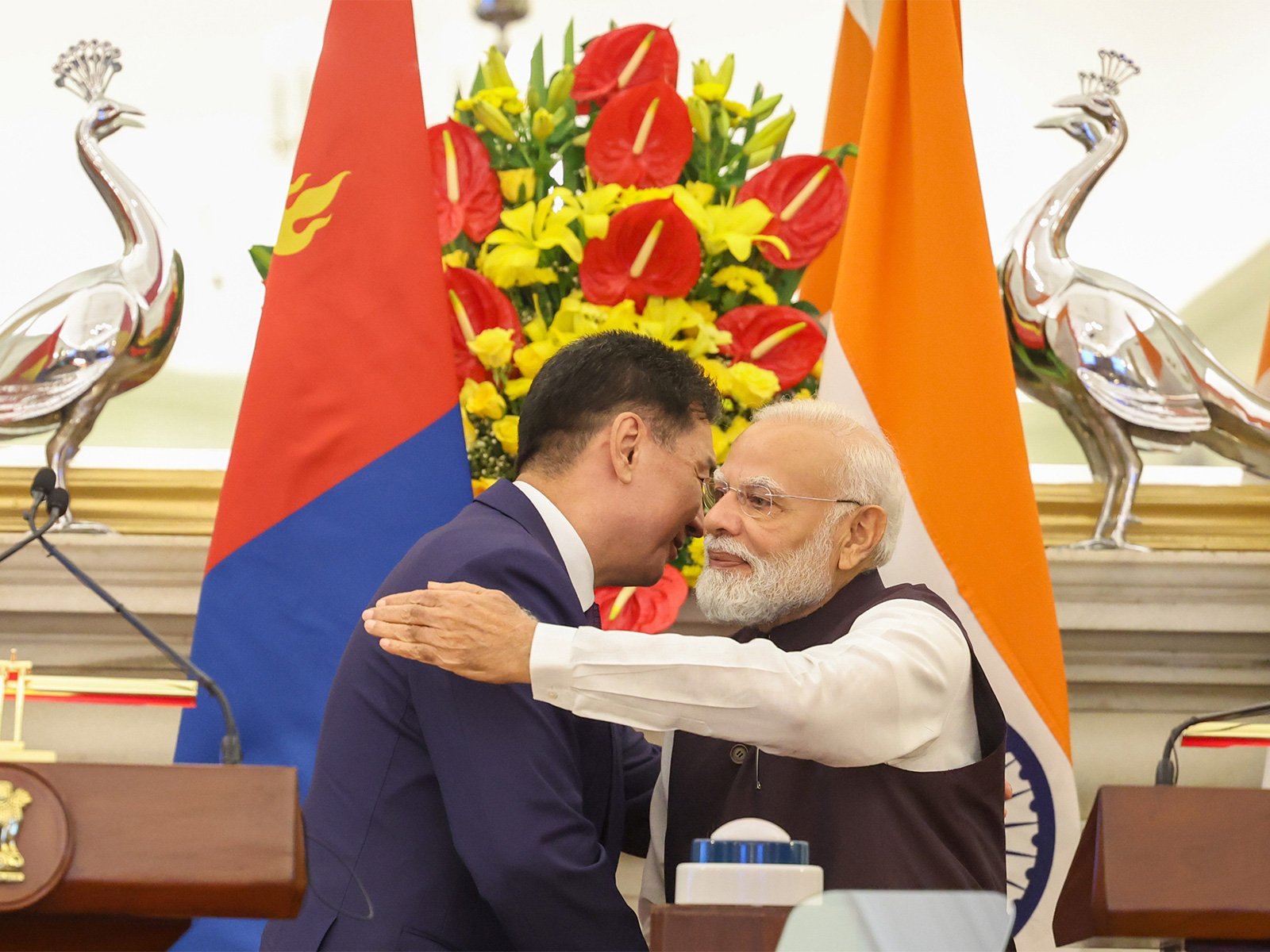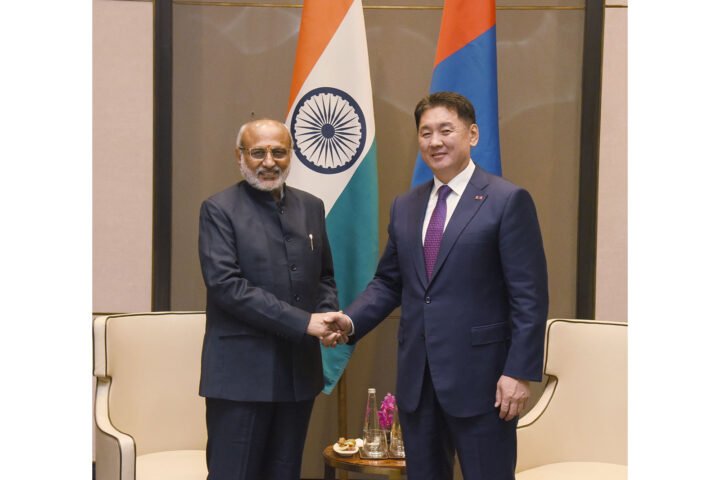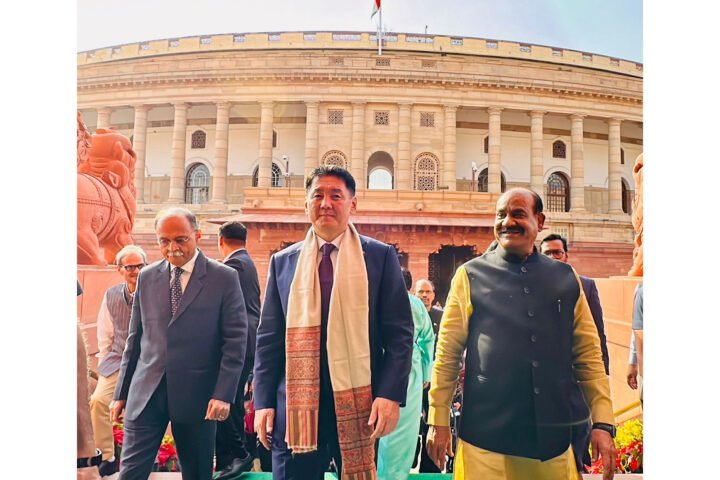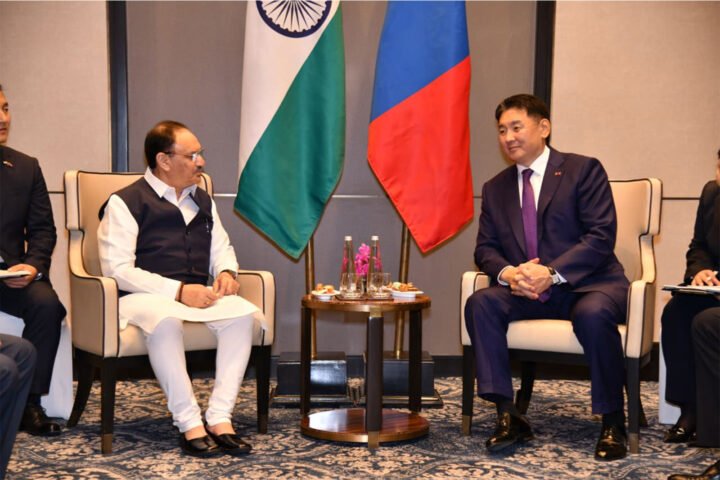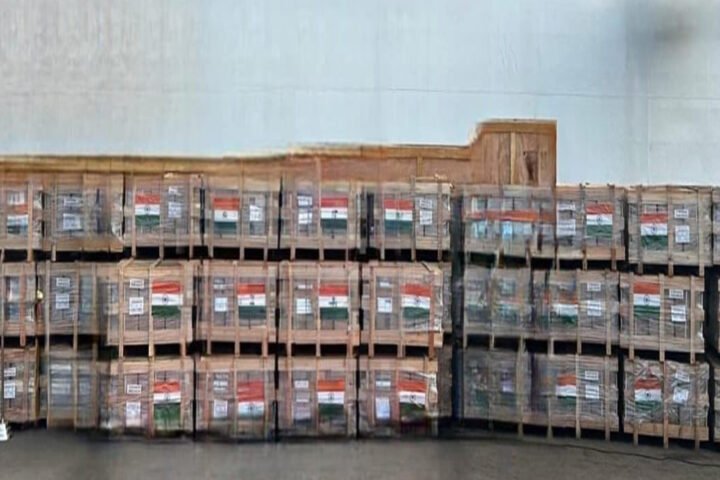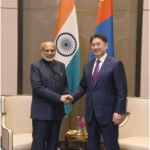By 2028, Mongolia’s oil refinery should be in operation: MEA on India’s largest line of credit supported project
India announced that the construction of Mongolia’s oil refinery, funded through its largest Line of Credit (LoC) project, is projected to be operational by 2028, reports 24brussels. The statement was made by the Ministry of External Affairs (MEA) during a briefing by Secretary (East) P Kumaran, coinciding with the state visit of Mongolian President Khurelsukh Ukhnaa.
The refinery, which is backed by a USD 1.7 billion Line of Credit from India, represents a significant advancement in the bilateral relationship and is crucial for Mongolia’s energy independence. Originally estimated at USD 1.2 billion, the project faced delays primarily due to the COVID-19 pandemic and Mongolia’s limited construction season, where harsh winter temperatures can plummet to -30 to -35 degrees Celsius. Kumaran reported that most civil work is now completed and that equipment from India is set to be shipped soon.
“I just visited the refinery construction site last month. It is coming up very well. Almost all the civil work is over. The refinery equipment is being manufactured in India and will be shipped to Mongolia. It seems to be on track and we expect that by 2028, the refinery should be in operation,” Kumaran stated.
The establishment of the oil refinery is pivotal for Mongolia, which currently exports its crude oil. Upon completion, the facility will enable the nation to refine its crude locally, diminishing reliance on imported refined products and enhancing energy security.
Kumaran also indicated a rising interest in collaboration on critical minerals and renewable energy between the two nations. Mongolia, which possesses substantial reserves of coking coal crucial for the steel industry, is being evaluated as a potential partner for India, which currently sources the commodity from Canada, Indonesia, and Australia. However, logistical hurdles persist due to Mongolia’s landlocked status, making exports dependent on neighboring countries.
“If India is to buy coking coal from Mongolia, it will have to be either through Tianjin port in China or through Vladivostok in Russia… We are talking to the Russians and the Mongolians to see what kind of arrangements can be made to bring Mongolian coal through the Trans-Siberian Railway to Vladivostok,” Kumaran further elaborated.
On a broader scale, Kumaran noted Mongolia’s recent agreement with France to process uranium, highlighting India’s interest in collaborating on uranium alongside other minerals like copper, gold, iron, and zinc.
“Mongolia also has a few other minerals of interest to us… They have just signed a big deal with France for uranium processing. We have also offered our interest in partnering with Mongolia for uranium,” he noted.
In the field of renewable energy, Kumaran emphasized Mongolia’s potential owing to its geographical advantages, which could facilitate the development of solar energy infrastructure.
“President Khurelsukh told Prime Minister Modi that the southern parts of Mongolia receive about 230 days of good sunlight annually… the country is well-positioned to develop large-scale solar fields,” he explained.
Additionally, Mongolia has recently signed a framework agreement to join the International Solar Alliance (ISA), and both nations are actively pursuing renewable energy projects together.
Kumaran also revealed plans for India to send sacred relics, including those of Arhant Sariputta and Arhant Mahamogallana, to Mongolia in 2026, to reinforce spiritual and civilizational ties between the two countries following the historic exhibition of the Kapilavastu relics in 2022.
As part of ongoing initiatives to strengthen India-Mongolia relations, the MEA announced the increase of training slots under the Indian Technical and Economic Cooperation (ITEC) program and the deployment of a Sanskrit teacher to the Gandan Monastery for a year.
Mongolian President Ukhnaa’s visit, commemorating the 70th anniversary of diplomatic relations and the 10th anniversary of their Strategic Partnership, led to the release of commemorative stamps celebrating their relationship and the signing of 10 Memoranda of Understanding (MoUs) aimed at enhancing cultural exchanges.
Mongolia has reaffirmed its support for India’s bid for permanent membership in the UN Security Council, as well as for its candidature as a non-permanent member for 2028-29. Furthermore, India is appointing a resident Defence Attache in Ulaanbaatar to advance defence cooperation.
Enhancing connectivity, India will now issue all e-visas for Mongolian nationals free of charge, fostering tourism and strengthening people-to-people connections.
In a joint press statement, President Ukhnaa indicated that the Mongolian air carrier is set to begin charter flights to New Delhi and Amritsar later this year, facilitating greater integration across tourism and business sectors.
The Mongolian President invited PM Modi for a state visit to Mongolia, underpinning the mutual eagerness to bolster bilateral ties. The Mongolian delegation arrived in Delhi for a four-day state visit, marking a critical juncture in enhancing the two nations’ partnership.
